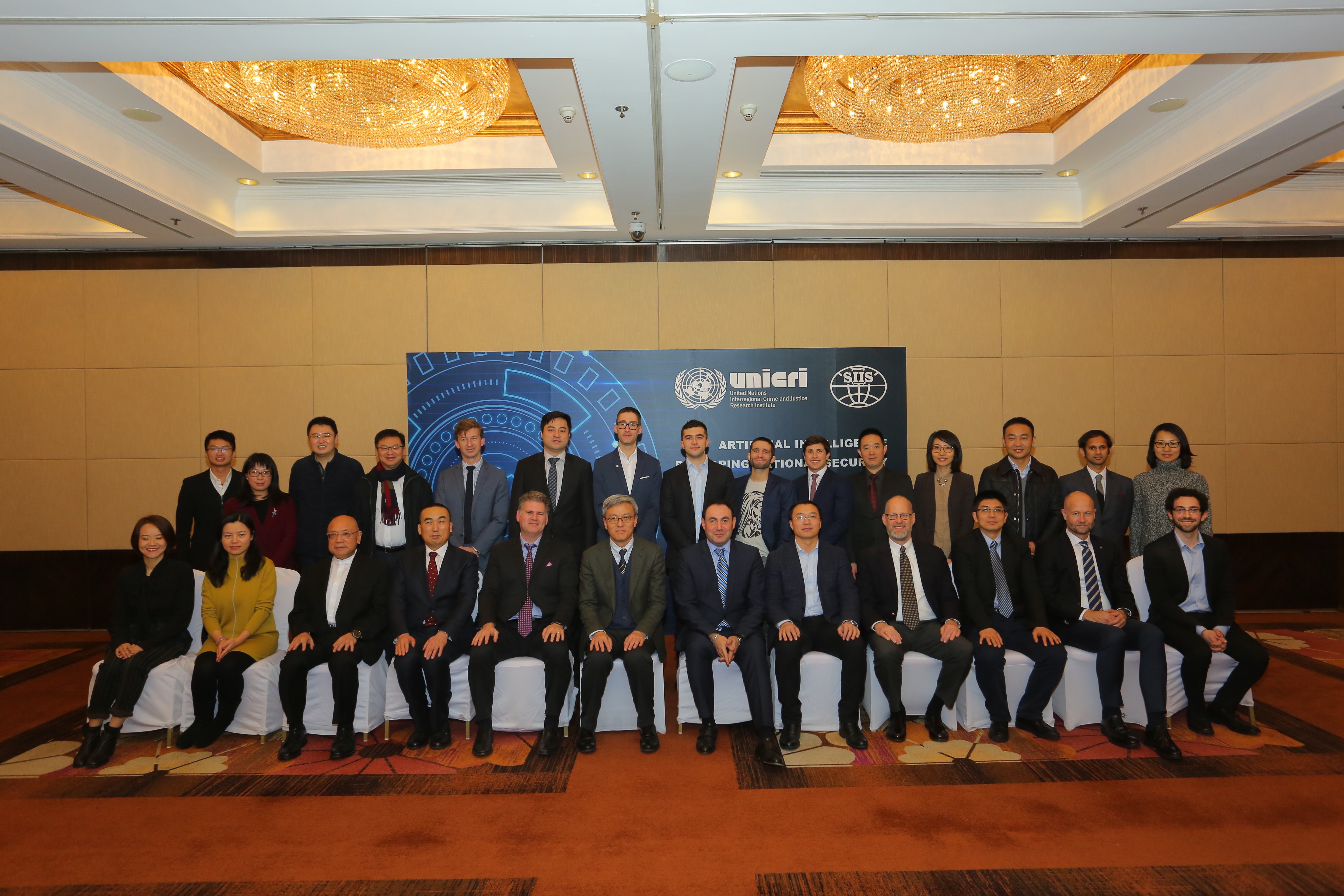From December 17 to 18, 2018, the Shanghai Institute of International Studies and the United Nations Interregional Crime and Justice Research Institute (UNICRI) co-organized the International Symposium on "Artificial Intelligence--Reshaping National Security" in Shanghai.

Prof. Chen Dongxiao, President of the Shanghai Institutes for International Studies, and Irakli Beridze, Director of the Center for Artificial Intelligence and Robotics of the United Nations Interregional Crime and Justice Research Institute, made opening remarks at the meeting. More than 30 Chinese and foreign scholars were invited to attend the meeting including overseas scholars from academic and consulting institutions such as the Centre for Artificial Intelligence and Robotics of the United Nations Interregional Crime and Justice Research Institute, the Global Integrated Innovation Centre of Interpol, the University of Oxford and Ernst & Young, and Chinese scholars from the Shanghai Institutes for International Studies, the Shanghai Academy of Social Sciences, Fudan University, Ji’nan University, the China Institutes of Contemporary International Relations, Peking University and other institutions.
In the "opportunities and challenges" theme session, participants gave speeches on the relationship between national security and artificial intelligence, and what are the opportunities and challenges facing them respectively, and how to play the role of international organizations, including the United Nations.
In the "weapons and Law Enforcement" session, invitees shared the latest research progress about the development of artificial intelligence weapons, how to carry out arms control, and counter-proliferation issues, In the "geopolitics and arms race" segment, speakers focused on whether there is an arms race in artificial intelligence as well as its potential impact, how to promote cooperation through international exchanges to reduce conflict and so on.
In the session of "impact on future policies and cooperative establishment", the discussion focused on how the government should establish a regulatory system, how to carry out cooperation among major countries on global regulatory issues such as sharing and discussion.
Finally, the experts gave a full range of analysis and discussion on the impact of automation on society and economy. Scholars shared their views from the perspectives of economic development, social progress, national security and other aspects of the development of artificial intelligence technology. They also provided policy suggestions on how to respond to new technologies and applications.
